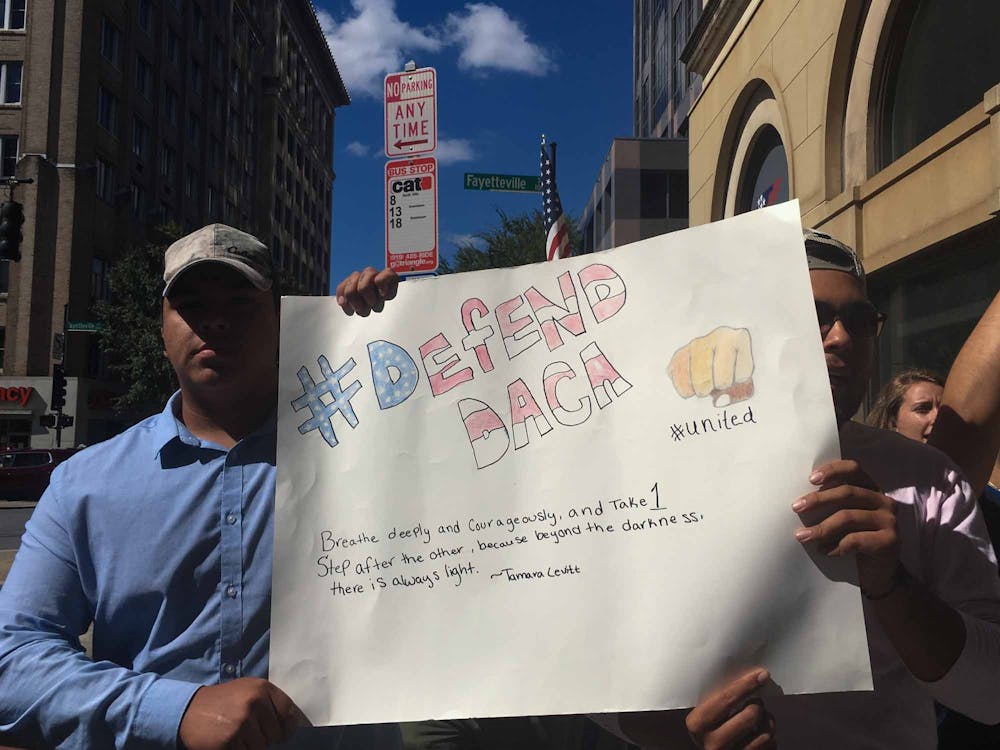North Carolina is home to a large undocumented population — more than 309,000 individuals. However, undocumented students remain largely underrepresented in colleges and universities across the state.
These students, many of which have lived in the U.S. for most of their lives, are not U.S. citizens, and thus face barriers to gaining higher education. North Carolina is particularly stringent in its rules surrounding access for undocumented youth.
The 1982 U.S. Supreme Court ruling in Plyler v. Doe gave undocumented youth the same access to public K-12 education as their U.S. resident and citizen counterparts. While this ruling does not explicitly include access to higher education, it frames the debate and has guided many universities’ enrollment policies.
UndocuCarolina, an organization that provides awareness and resources for undocumented students, said “there is no federal or North Carolina law that prohibits the admission of undocumented immigrants to U.S. colleges, public or private.”
Citizenship status is not a barrier to applying to or enrolling in any public or private college or university. The challenges arise when you factor in affordability.
It can and is used as a hurdle to important cost-reducing tools, such as in-state tuition pricing, federal financial aid and Pell grants.
Undocumented students are currently not considered citizens or residents of the states they reside in and thus pay out-of-state tuition. At UNC, for reference, the out-of-state tuition is more than $35,000. In-state students pay a fraction of this — around $7,000.
N.C. Senate Bill 672, filed last year, would allow Deferred Action for Childhood Arrivals recipients to pay in-state tuition in UNC System schools. The bill hasn’t seen much movement, however, and would only apply to DACA students, a status that non-citizen youth must renew every two years.
Also, due to citizenship requirements, undocumented students are unable to lessen the financial burden with grants or financial aid. The Federal Student Aid office directly bars undocumented students and DACA recipients from receiving federal financial aid and defers these students to private and institution-specific scholarships.



